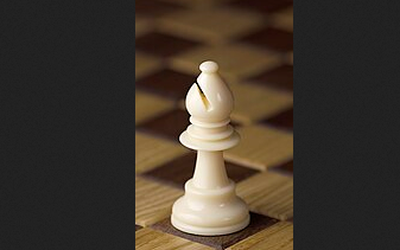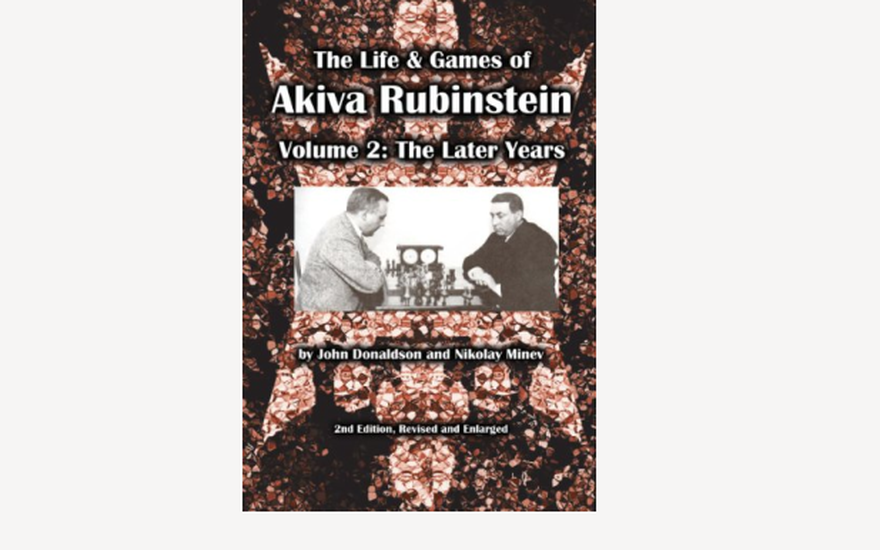
Book review : The Life & Games of Akiva Rubinstein. Volume 2 : The Later Years
by John Donaldson and Nikolay Minev. 2nd Edition, Revised and Enlarged (Russell Enterprises 2011)Bought this second hand, after I read a few positive notes about it on Lichess.
The book itself looks nice, and the chess game moves and its diagrams are pleasant to read.
The introduction in the book and its historical epilogue take 27 pages and is interesting in my view.
The book itself has many games, some with a lot of annotations by various authors, e.g. annotators like Alekhine, Botvinnik, Euwe, Tartakover, Kmoch, and Rubinstein himself. Apart from these annotations there is sometimes brief comments from the authors. I like their modest approach using words like "In our opinion ... after the black knight goes to e4, black can still play for a win". It is not filled with chess engine lines claiming to know the full truth, but gives the impression that both authors looked at the games.
Historically I found some facts remarkable to read. For example, at one tourney, the time control was 4 hours for 60 moves. Wow, those were different times. And then at one page it is mentioned that Rubinstein came 6 hours late for his game against George Thomas, without giving an explanation. It turns out that Rubinstein came late for his chess games more often. Not only that, he lost several games on time.
The book is not a "50 best games" of our chess hero. It is a book which shows a lot of losses by Rubinstein, and shares lots of historical facts, and photos, for which the authors seemed to have worked hard to find them, from magazines and newspapers.
When going through the games, we can learn that Alekhine was the nemesis of Rubinstein, with various losses for Rubinstein. Still, it is clear that Rubinstein was a legend. GM Boris Gelfand is a big fan of Rubinstein, and I've read that chess coach Yuri Razuvaev had shown his favorite Rubinstein games to Magnus Carlsen.
I also think that not only Gelfand but both Karpov and Carlsen have learned from Rubinstein's games.
Rubinstein was not only a superb endgame player, but also a deep strategic thinker, and Rubinstein has also contributed to opening theory. For example a line in the Nimzo-Indian defense is named after Rubinstein.
Rubinstein, in the game below, played an opening idea by Janowsky, 3...a7a6. Alekhine claims that this is a loss of time and creates weaknesses, and that white best plays 4.cxd5 or 4.c4c5. However, the a7a6 move is still played nowadays by several top GMs, including several games by Magnus Carlsen.
From the book we can learn that Rubinstein had his tactical time, playing attacking chess, King's Gambit as white. Rubinstein liked very much to have the bishop pair, and would usually not mind at all going to an endgame. We can also see in the games that he liked to push the h pawn (Just like Magnus Carlsen, and Alpha Zero), and when defending bring queen or bishop very close to the king. We can also see, deep tactical ideas from Rubinstein.
Here is one of Rubinstein best games ever, featuring King's Gambit :
Here is a game of one of the 4 brilliancy prizes that Rubinstein won (There were 7 brilliancy prizes total) in the tourney of Teplitz-Schönau in 1922. Rubinstein pushes both the a and h pawns, and then sacrifices both of them to win the game.
The book also featured one of the best games of Aaron Nimzowitsch. In the diagram Nimzowitsch is about to play Nh1!! and the game goes on with Rubinstein with his beloved bishop pair losing against the more active knight and bishop and heavy pieces of Nimzowitsch.
Let's end with an endgame gem by Rubinstein.
Here Rubinstein is about to play Ne4xd2.
The book mentions :
"Rubinstein plays concretely. Boris Gelfand points to this game as an antecedent for Fischer's similar trade of a beautiful knight for a bad bishop in game seven of his match with Petrosian."
Conclusion : Nice chess book. Good job by the authors. 4 out of 5 stars.
More blog posts by achja
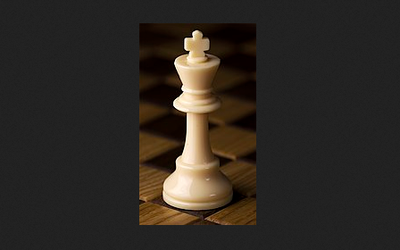
Sharing two chess compositions I enjoyed this week
First the diagrams, then some comments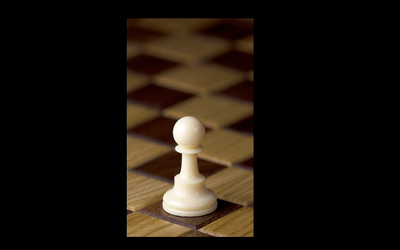
Modern defense - h and a pawn push game - and how black can play better
In the past I have tried this h pawn push idea several times, but if black responds properly this ca…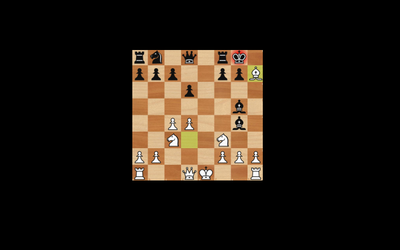
A closer look at a stunning Greek gift novelty from Nepo
In May 2016 GM Nepomniachtchi uncorked a surprise Greek gift sacrifice in a team game versus GM Sjug…